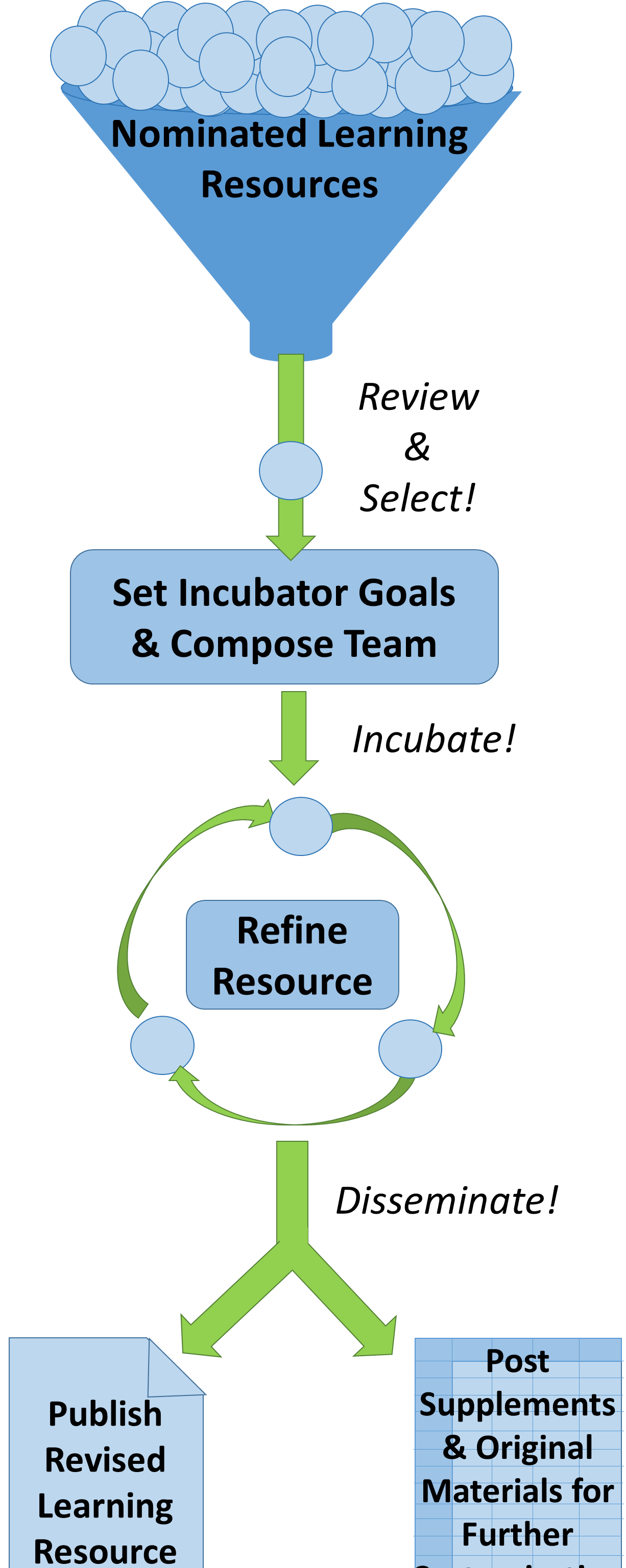NIBLSE Incubators: A community-based model for the development of bioinformatics learning resources
By Michael Sierk, Sam S Donovan, Bill Morgan, Hayley Orndorf, Mark A. Pauley, Sabrina Robertson, Elizabeth F Ryder, William Tapprich

Module Description:
This week’s featured resource is a presentation from a Special Session on Bioinformatics Education at the 2019 Great Lakes Bioinformatics Conference. Here is the abstract for “NIBLSE Incubators: A community-based model for the development of bioinformatics learning resources”:
The Network for Integrating Bioinformatics into Life Sciences Education (NIBLSE) is an NSF funded Research Coordination Network that aims to establish bioinformatics as an essential component of undergraduate life sciences education. As part of that effort, the project is working to make existing bioinformatics learning resources more accessible to non-specialists and increase their use across undergraduate biology courses. To this end, NIBLSE has partnered with the Quantitative Undergraduate Biology Education and Synthesis (QUBES) project to develop and implement a novel model, called incubators, for supporting the refinement, publication, and dissemination of high-quality bioinformatics teaching resources such as a lab activity, worksheet, or classroom exercise. The incubators bring together the author of an existing resource with experienced users, novice users, and a managing editor from NIBLSE to discuss how to refine and improve the resource to make it more robust and more applicable in various undergraduate settings. The talk will outline the challenges faced in developing high-quality learning resources and describe how the incubator model addresses several of those challenges. Examples of previous incubators will be presented, and attendees will be shown how to volunteer to participate in an incubator.
Teaching Setting:
NIBLSE incubators result in teaching materials that are specifically designed to engage undergraduate biology students in a variety of teaching settings.
Citation:
Sierk, M., Donovan, S. S., Morgan, B., Orndorf, H., Pauley, M. A., Robertson, S., Ryder, E. F., Tapprich, W. (2019). NIBLSE Incubators: A community-based model for the development of bioinformatics learning resources. GLBIO2019 Special Session on Bioinformatics Education, QUBES Educational Resources. doi:10.25334/Q4QX7T
|